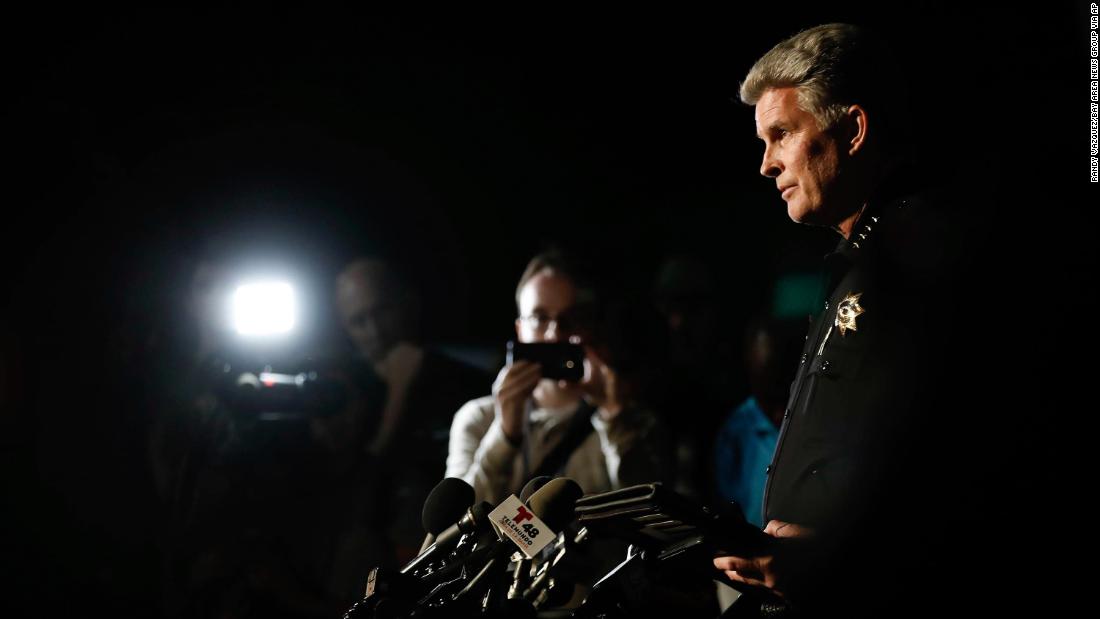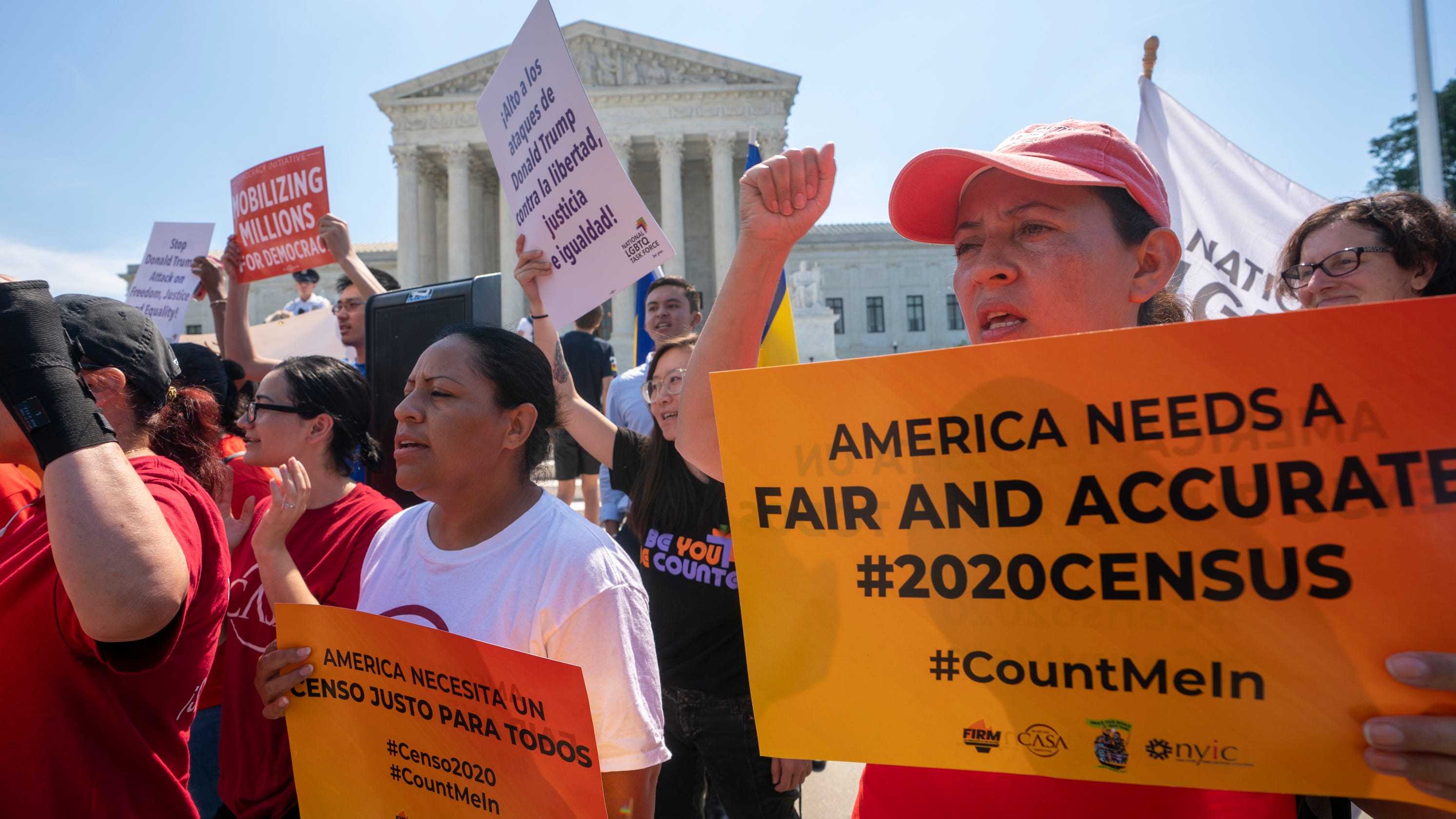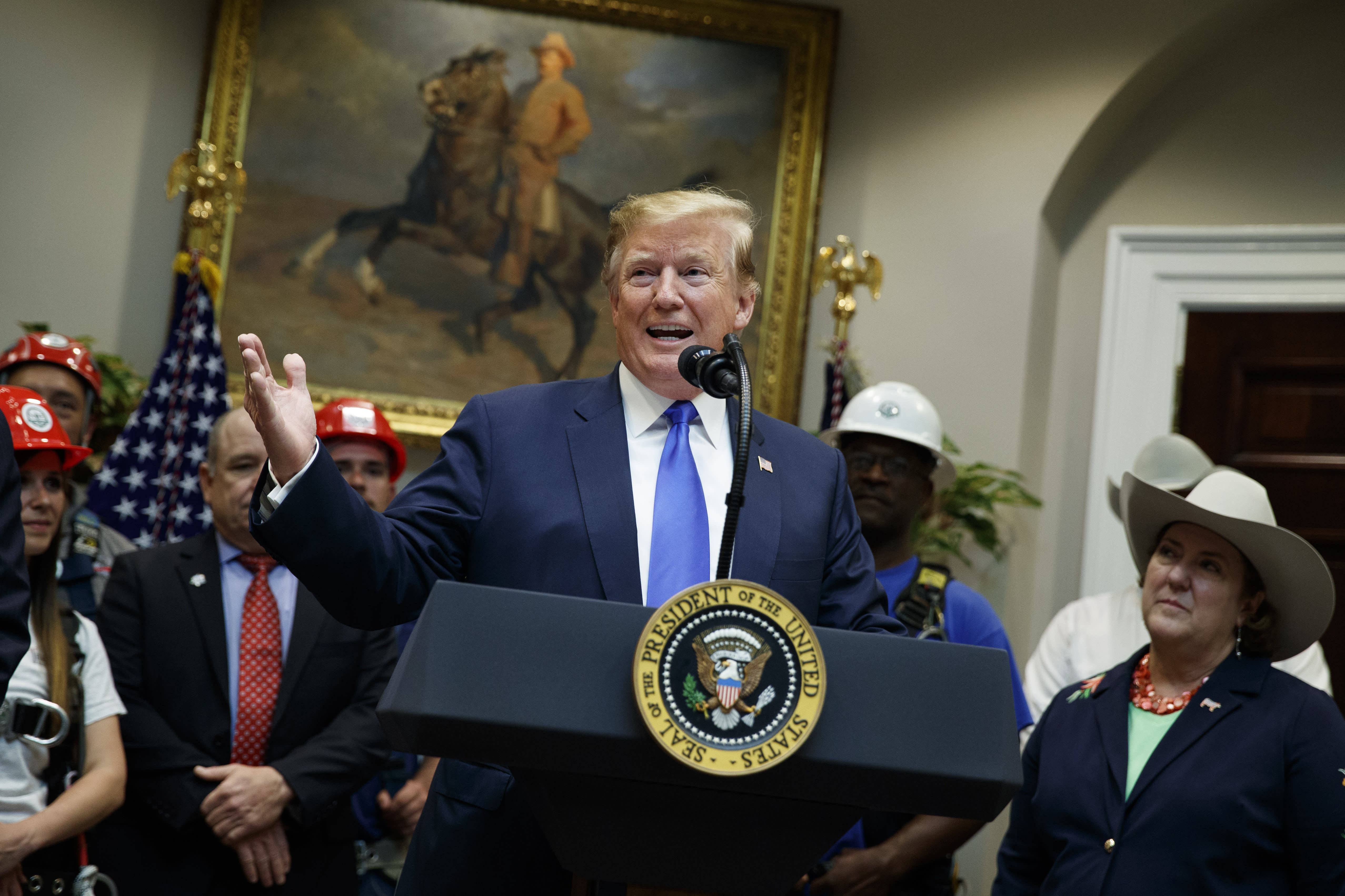Experts Matter. Find Yours.
Connect for media, speaking, professional opportunities & more.

Privilege Creates a Different Starting Line in “Race to the Jobs”
College is a unique microcosm of society where students from a variety of backgrounds come together in one place. Many times, students have not been exposed to people from backgrounds that differ from their own. I consider this an opportunity to teach my students at Otterbein University about social inequality and privilege. In my Sociology of Sport course, I illustrate to students that the societal “playing field” isn’t always equal for everyone in visible or obvious ways. I use athletics as an entry point to teach them about the different privileges – or disadvantages – each of us have. I take students to the football field, where everyone starts at the 25 yard line facing the end zone. Standing in the end zone, I represent each student’s dream job or career path. Then I proceed to read statements out loud – and if that statement applies to them, students take a step forward or step back, depending on the directions given. My statements range from “if you have immediate family members who are doctors, lawyers, or other professionals, take one step forward” to “if you were ever called names or ridiculed because of your race, ethnicity, or social class background, take one step backward.” Each of the statements read are beyond the students’ control. Once I’m through reading all of the statements, I ask students to look around, noticing who is in front of them, who is behind them. Then they sprint to my position, and the first one to reach me is the winner of the race, representing the competition to the dream job.. However, through this activity, it’s clearly seen that not everyone had the same advantages as the others. Before they begin the race to me in the end zone, ready to run toward their dream job, students are already noticing the advantages some have over others. It really begins to sink in once they look around and see how everyone is staggered across the field. There is no even starting line – we all start from positions on the field. This Race to the Jobs activity, originally conceived by social justice activist Paul Kivel, becomes a springboard in our class for a better understanding of our own privilege and how we can all help create more opportunities for those who need help to overcome an obstacle. Doing this active learning makes it that much more impactful and poignant. Taking a different approach to showing these issues can make a big difference in student’s perceptions. They open their minds up to new – and sometimes difficult or challenging concepts of privilege and oppression – becoming more self-aware. The students begin to see that, just as in our classroom discussions and course readings, not everyone can be a LeBron James, born into a relatively difficult situation, and rise to his level of success on luck or talent alone. We need to examine our own privilege because if we don’t know who we are, we will never see our blind spots. Kristy McCray, Ph.D., is an Otterbein assistant professor in sport management. Contact her if you have any questions or wish to arrange an interview by clicking on her icon at the top.

IU Kelley School expert: $170 million fine of Google, YouTube probably not enough
In the largest fine ever, Google agreed to pay $170 million to settle a case with the Federal Trade Commission and New York’s attorney general over charges that YouTube made millions from violating children’s privacy laws. Scott Shackelford, associate professor of business law and ethics at the Indiana University Kelley School of Business, chair of IU’s Cybersecurity Program in Risk Management and director of the Ostrom Workshop Program on Cybersecurity and Internet Governance, doubts it will have much of an effect. “Google, via YouTube, has been held accountable by the FTC and the New York Attorney General’s Office for its practices that violated children’s privacy, but it’s questionable whether a $170 million fine is sufficient to change business practices,” Shackelford said. “Similar to its $5 billion fine against Facebook, the FTC needs to do more to both increase these penalties, and even more importantly require the necessary steps to ensure that these violations do not recur. This is the FTC’s third fine against Google since 2011, for example, and it will likely not be the last.”

The Gun Control Debate is at a Stalemate. Can Smarter Weapons Help to Solve it?
The gun control debate is at a stalemate. America seems incapable of finding common ground on background checks, waiting periods, weapons registries and restrictions or bans on select weapons. Shooting after shooting has resulted in decades of debate but little substantive change. But Professor Selmer Bringsjord from Rensselaer Polytechnic Institute, who recently weighed in on the issue, presented a concept that could turn the entire topic on its head by using artificial intelligence. Bringsjord accepts that America won’t get rid of its guns – so why not just make our guns smarter? Ethically AI-enabled weapons can put American politicians back to work by shifting the debate from the weapons we should ban, to the targets we will accept. Do we allow guns to kill school children, shoppers, concert-goers? The technology of ethical AI changes the conversation. His idea was just recently published in the Times Union: “Yet there is a solution, a technological alternative to the fruitless shouting match between politicians: namely, AI — of an ethical sort. Guns that are at once intelligent and ethically correct can put an end to the mass-shooting carnage. Consider the rifle apparently used by the human killer in the El Paso Walmart shooting. But now suppose that time is turned back to before his shots were fired on Aug. 3, and that his rifle, radically unlike the stupid one that killed, is both intelligent and ethical. This alternate-future rifle would know that it's approaching the Walmart by car and would accordingly know that it has no business being used anytime soon. Move forward in time a bit; the rifle is now in the hands of the aspiring, ear-muffed killer outside his car; but his weapon has fully disengaged itself and is locked into a mode of utter uselessness with the finality of a sealed bank vault. On the other hand, the guns in the hands of law enforcement officers who have dashed on scene know in whose hands they rest, and accordingly know that if they are trained on the would-be killer, they have every right to work well, if this criminal reveals some new threat. Notice: If people who don't actually pose a threat sufficient to warrant being shot by police can't be shot by smart, ethical guns, a fact that could lead to the welcome evaporation of a different but also vitriolic political shouting match.” -Times Union, August 16, 2019 Could AI be the answer to America’s gun problem? It’s truly a new perspective on an old issue. If you are a reporter covering this topic, let our experts help with your story. Dr. Selmer Bringsjord is the Chair of the Department of Cognitive Science expert in logic and philosophy, specializing in AI and reasoning. Dr. Bringsjord regularly speaks with media about AI and is available to speak about the concept of intelligent, ethical guns. Simply click on his icon to arrange an interview.

Surviving a mass shooting – let our experts help with your coverage and understand what’s next
At least 15 people were injured and three were killed, including a six-year-old boy, when a gunman opened fire on a crowded festival in California on Sunday. Investigators are still left searching for a motive and reason. But in the wake of any tragedy there lies countless numbers of witnesses, relatives and first responders who will be impacted mentally, physically and psychologically from this event. Those wounds are often deep and difficult to treat. If you are a reporter covering this shooting or any other incident of this magnitude – that’s where our experts can help with your questions and coverage. Dr. Laura C. Wilson is a clinical psychologist whose expertise focuses on post-trauma functioning, particularly in survivors of sexual violence or mass trauma (e.g., terrorism, mass shootings, combat). Her research interests extend to predictors of violence and aggression, including psychophysiological and personality factors, as well as indicators of PTSD following mass trauma, long-term functioning among first responders, outcomes among survivors of sexual violence, and the influence of media on mental illness stigma. Dr. Wilson is available to speak with media – simply click on her icon to arrange an interview today.

'The wrong way to fix social media'
In a recent column published by the St. Louis Post-Dispatch, Associate Dean and Professor Enrique Armijo of the Elon School of Law addresses flaws in a plan to crack down on social media content many find objectionable. Armijo, an expert on how new technologies affect free speech issues, explains how the Communications Decency Act prevents internet websites and applications from being liable for the content of their users. Now more than 20 years since that protection was codified, there is a movement to legislatively revoke that immunity from liability as debate about whether internet platforms should assume more responsibility for the content they publish and distribute. Anyone who calls himself a conservative should be embarrassed to be associated with this idea. As an initial matter, the legislation ignores the fact that a publisher's decisions as to what to publish are protected First Amendment speech. Armijo goes on to note that "the actual First Amendment rights of platforms cannot be sacrificed to protect rights of access to the platform's users claims but don't exist. We can all hope that neutrality will guide the hands of power, but the government cannot command neutrality from the powerful." If Dr. Armijo can assist with your reporting about free speech, social media and new technologies, please reach out to News Bureau Director Owen Covington at ocovington@elon.edu or (336) 278-7413. Dr. Armijo is available for phone, email and broadcast interviews.

The political math behind the numbers - let our experts explain why a census is suddenly a hot topic
Usually, there’s nothing particularly interesting, let alone controversial, about a census. It’s an objective collection of data that allows the government and other organizations to use pure evidence to determine things like population growth and shift, income rates and education participation rates. For those who rely on metrics, it means a lot. For everyone else — it’s a form we fill out once a decade. However, these are not normal times. There's an ongoing debate among politicians and the courts regarding the request to add a question about citizenship to the 2020 census. Here’s the question: So, is it right to inquire about citizenship in a census? What are the benefits? What are the concerns And why is this such a big deal? That’s where our experts can help. Dr. Martha Ginn, professor of political science at Augusta University, is an expert on the judicial process, constitutional law and the U.S. Supreme Court. Dr. William Hatcher, associate professor of political science and director of the Master of Public Administration program at Augusta University, focuses on public administration and social, economic and political institutions in local communities. Both are available to speak with media regarding the census issue. To arrange an interview, click on either expert’s icon.

A closer look at deepfakes. Let our experts explain if there’s a reason to worry.
Deepfakes…they’re eerie, entertaining and getting a lot of attention. Deepfake videos are made using artificial intelligence technology which can manipulate someone's face in a video to make it look like they are saying something that they didn't. It's one level up from dubbing, or lip syncing, and can appear very convincing. One example is a video that was made using footage of Mark Zuckerburg in 2017; it was doctored and falsely portrays the Facebook CEO discussing how he had stolen data. – The Sun, June 26 The new concept is all the rage and has seen people spoofed, mocked and tricked. But as once again technology outpaces legislation and with an election approaching, deepfakes have some people going off the deep end. Every day, thousands of videos are posted online, which means that any potential filtering program would need to be able to quickly and efficiently detect fake content. Even then, such media would likely be removed only after being published, meaning that the video would likely have already had an impact. For these reasons, deepfakes are expected to contribute to the upcoming 2020 election in the United States, likely acting as an agent of spreading fake news. However, Edward Delp, a Purdue University professor who developed a computer program to help detect these videos, believes deepfakes pose a bigger threat. “Deepfakes pose a threat to more than just political videos,” he said. “It can be used in making fake child pornography, revenge porn and financial bribes. Just general criminal behavior.” – The Exponent (Purdue University), June 21 As deepfakes become more common on social media and the internet, odds are they will make their way – accidentally or not – into the actual media. And as America still battles with the fake news phenomenon, will Deepfakes further erode our trust in media and our leaders? As deepfakes become more common on social media and the internet, odds are they will make their way into the actual media. So, what can be done? How will these deepfakes affect the perception of news media? What simple advice can we apply to verify if something is real or fake? And do these videos represent a threat to democracy, as some experts are saying? Dr. Gregg R. Murray, professor of political science at Augusta University, is available to talk about the implications of this new threat. Murray’s research focuses on political behavior and psychology with specific interests in voter mobilization and turnout. He is also executive director of the Association for Politics and the Life Sciences.

It’s been 50 years since Stonewall…but has America really accepted gay rights?
It’s been a half-century since the Stonewall Uprising and the emergence of the gay pride movement. As cities across the world celebrate this month, it might also be time to look at where America stands today when it comes to gay rights. “From the perspective of veteran activists, the progress has been astounding. In 1969, every state but Illinois outlawed gay sex, psychiatric experts classified homosexuality as a mental disorder, and most gays stayed in the closet for fear of losing jobs and friends. “Today, same-sex marriage is the law of the land in the U.S. and at least 25 other countries. LGBT Americans serve as governors, big-city mayors and members of Congress, and one — Pete Buttigieg — is waging a spirited campaign for president.” June 17, ABC News But there is still a lot of work to do. LGBTQ people not only face discrimination in the workplace, in health care settings and even public restrooms, but can also suffer threats of violence. Just last month, the nation was shocked to learn of the chilling attack of an American woman and her partner overseas in London. The lesbian couple was violently assaulted by teens on a double-decker bus, leaving one of the women with a broken jaw, after they refused to publicly kiss one another in front of the group of young men who were harassing them. Are you covering this topic? There are a lot of questions about what needs to be done and that’s where our experts can help. Todd Powell-Williams, associate professor of Sociology at Augusta University, is an expert in social movements, social control, religion, police science and symbolic interactionism. Dr. Powell-Williams is available to speak with media about gay rights and where America stands 50 years after Stonewall. Simply click on her icon to arrange an interview.

Is Wall Street hedging on a Trump win in 2020? Let our experts tell you why.
“The economy, stupid!” It’s a famous quote that Bill Clinton campaigner James Carville used in 1992. And the Ragin’ Cajun was right – odds are, when it comes to Americans casting a vote in presidential elections – the economy calls the shots on how they vote. And despite the scandals, the Tweets, the gaffes and the indictments – the economy under President Donald Trump is booming. So, while convention and traditional politics would likely write of the presidency of Donald Trump as a one term wonder - an article about a recent report commissioned by Goldman Sachs says Democrats and pundits shouldn’t be so sure to write him off. ‘In a comprehensive report released late Saturday, the investment bank gave its preliminary thoughts on a general election that’s still more than a year away. While Trump re-election is far from assured, Goldman’s economists believe the president is bolstered by “the advantage of first-term incumbency and the relatively strong economic performance,” in what is sure to be a “close call” election.’ - Yahoo! Finance Are you covering the race for 2020? Should Democrats change their focus away from the scandals and the Mueller Report and focus on economics? If not, what are the issues that will sway undecideds next year? And what will a potential run by an Independent candidate mean for the race? There are so many storylines already at play and a long way to go before November 2020 – but the election is already daily news and that’s where our experts can help. Dr. Marc Clauson is a professor of history and law at Cedarville. Marc is an expert in the fields of political and economic philosophy Dr. Clauson is available to speak with media – simply click on his icon to arrange an interview.

It is time to finally change the laws regarding use of force? Let our experts explain.
It’s a recurring subject that is dividing parts of society. What is the proper amount and when can and should police use force? With increased media coverage, very public trials and a country that is seeing deep divisions between law enforcement and the people it is intended to protect – each case of an officer using force now comes with an enormous amount of scrutiny. So, what are the laws pertaining to the proper use of force? What deems an action an improper use of force? How are officers trained and are they properly equipped when confronting a situation? Do these laws need updating? There are a lot of questions to be asked and that’s where the experts from Cedarville University can help. Dr. Patrick Oliver serves as Director of the Criminal Justice Program at Cedarville University. He has over 27 years experience in law enforcement and is an expert in the areas of proper and improper use of force. He was also he chief of police in Cleveland and suburban Columbus, Ohio. Patrick is available to speak with media regarding this issue – simply click on his icon to arrange an interview.







